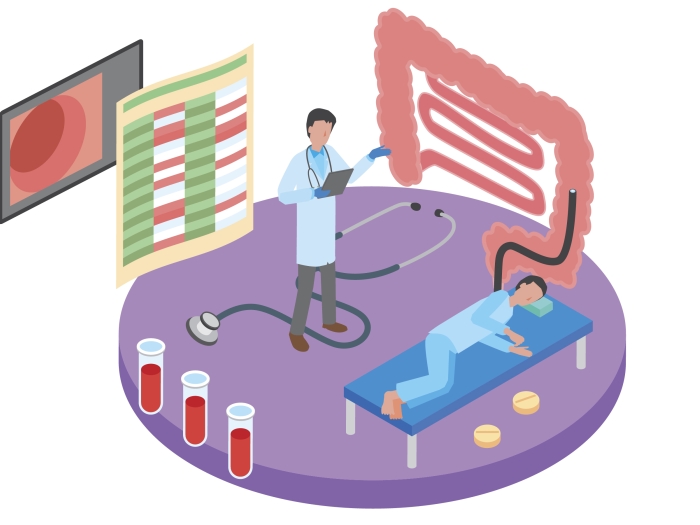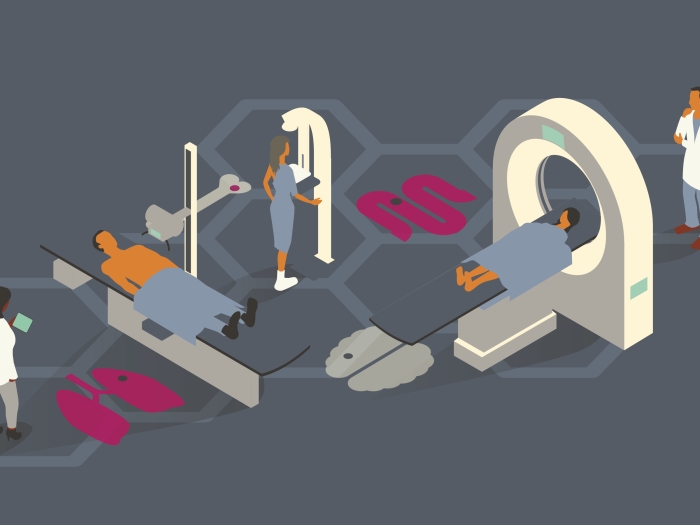Most important: Don’t panic. Second most important: Spread the word.
8:57 AM
Author |

The news started rippling through social media like an earthquake late last week: A judge in Texas had declared the Affordable Care Act unconstitutional.
LISTEN UP: Add the new Michigan Medicine News Break to your Alexa-enabled device, or subscribe to our daily audio updates on iTunes, Google Play and Stitcher.
The entire ACA: from health insurance programs that cover millions of people, to protections for people with health problems, to efforts to make health care safer for everyone.
Eight years and nine months after it became the law of the land, six and a half years after it survived a Supreme Court challenge, and more than a year after an attempted repeal in Congress, the ACA was struck down.
Well, not exactly.
The ruling doesn't take effect immediately.
So what should you know if you get health coverage through the ACA, or pay less for insurance because of it, or work in health care clinics and hospitals that get paid by ACA insurance plans?
We asked four University of Michigan experts for their thoughts. Here's what they said:
The lawyer
"Right now, nothing changes. The ACA remains in place, and no one's going to lose their coverage. We've still got years of appeals ahead of us," says Nicholas Bagley, J.D., a U-M law professor who follows the ACA's fate in Congress and the courts closely.
Bagley, who specializes in studying laws regarding the executive branch of the federal government, has shared detailed explanations of the ruling via his Twitter feed and in a Washington Post opinion piece soon after the ruling.
The primary care doctor focused on prevention
The court case against the ACA that led to the ruling focused on a specific provision: the former financial penalty that used to be imposed on people who chose not to buy health insurance. That penalty is going away thanks to Congressional action in the tax bill passed last year, but the court case was about whether the ACA could still stand without the requirement to buy health insurance.
That question didn't consider all of the other things the ACA includes, says a U-M primary care physician who actually helped write parts of the original law and has proposed improvements.
MORE FROM MICHIGAN: Sign up for our weekly newsletter
"While imperfect, the ACA has many popular provisions including coverage of dependent children up to age 26, and access to many essential preventive care services at no consumer cost," says Mark Fendrick, M.D., a professor of internal medicine who heads U-M's Center for Value Based Insurance Design. "It also provides reassurance to the more than 130 million Americans with pre-existing conditions, that they can access insurance coverage at a similar cost to those without a chronic disease."
Fendrick, who helped shape some of the ACA's preventive care provisions, has worked in recent years to promote changes that could help people with chronic conditions get even more help from the ACA. He plans to continue that effort.
The Medicaid researcher
One of the largest groups to be affected by the ACA is people who live at or near the poverty line, which is an income of about $12,400 for a single person and $25,000 for a family of four. Before the ACA, only certain people in this income range could get covered by the Medicaid program.
But since 2014, when the ACA's Medicaid expansion program took effect, that number has grown, says John Z. Ayanian, M.D., M.P.P., director of the U-M Institute for Healthcare Policy and Innovation and lead of U-M's effort to study the impact of that program in Michigan.
"About 12 million low-income Americans, including more than 660,000 adults enrolled in the Healthy Michigan Plan, have gained insurance coverage in 36 states that expanded Medicaid through the Affordable Care Act," he notes. "Our evaluation of the Healthy Michigan Plan shows it has improved access to care, physical and mental health, and the ability of enrollees to work."
What could the Texas judge's ruling mean for them? "This federal court decision could jeopardize these Medicaid coverage gains, but the legal process has many steps remaining," he says.
The health policy tracker
"It's vitally important for consumers to understand that nothing changes right now as a result of this ruling. There is no question that the ruling will be appealed given its potentially sweeping impact," says Marianne Udow-Phillips, M.H.S.A., of the nonprofit Center for Health and Research Transformation based at U-M. "Everything that exists under the Affordable Care Act is still in place and people should not panic."
Udow-Phillips, who leads a team that has studied many aspects of the ACA, adds that "The case is very important to the future of more than just the coverage elements of the ACA – the ruling could affect the ways hospitals and doctors are paid among many other things. So, it is important to stay informed and express your views in the public policy process so that policy makers are aware of what health care priorities are important to consumers."
The ruling came down one day before the end of open enrollment for most people who buy their own health insurance on the healthcare.gov website, another major ACA-related program. That site now has a red banner noting that the Texas court's decision does not affect coverage bought through the companies that offer individual plans.

Explore a variety of healthcare news & stories by visiting the Health Lab home page for more articles.

Department of Communication at Michigan Medicine
Want top health & research news weekly? Sign up for Health Lab’s newsletters today!




